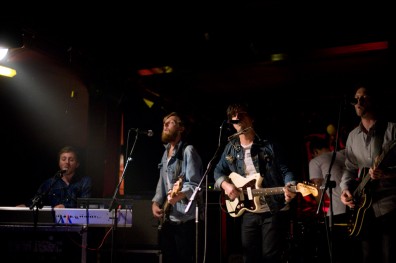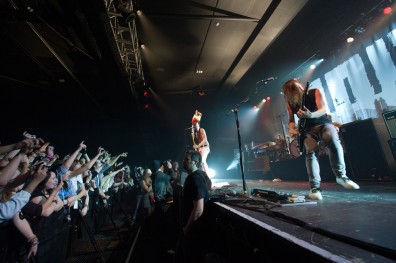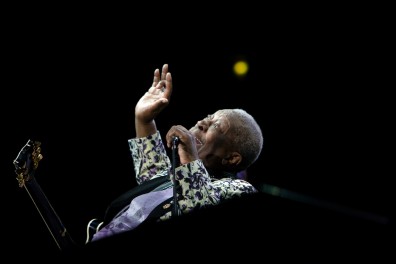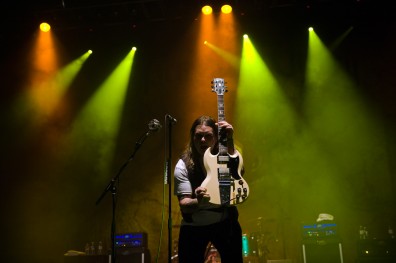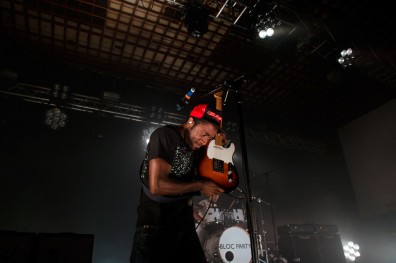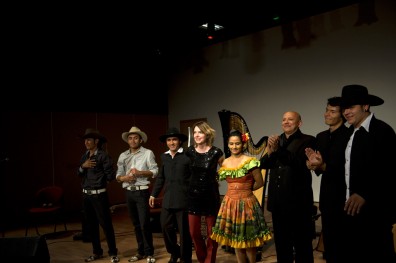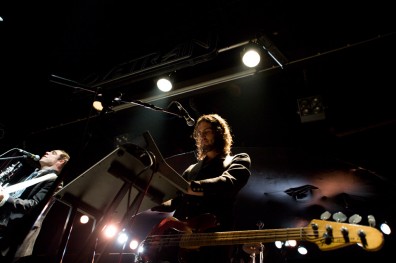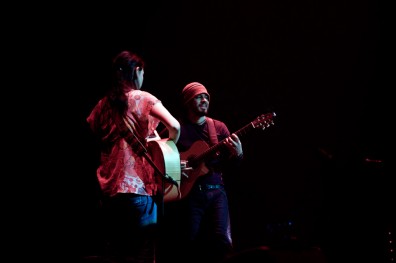Editor’s 2009!
Digitales
There is no question that the combination of digital technology and the Internet is changing the way we listen and buy. But what about their effect on music journalism and publishing? We have always tried to keep a 75% original content policy on editorial and 95% on photography, and to-date I have to say we’ve succeeded. I wish I could say the same for many other Internet music sites, but it is clear that each year there is a dramatic rise in the number of people accessing information via the Internet through social and music websites, while print publication sales and advertising income are tumbling. As is true with everything, there are advantages and disadvantages associated with this trend. For example: artists can now gain direct and easy access to consumers as never before, but hard copy music sales and income are decreasing. Artists can work independently of record labels, but their marketing budgets are generally much smaller, if they exist at all. Artist gigs are easier to communicate and sell, but tour expenses are high and growing, so breaking even is a real challenge… Through our DPK (Digital Press Kit) and CFC (Catherine Finch Centre) facility we believe we can help in 2010.
Audio and visual communication of music has expanded massively with Internet radio outperforming terrestrial and digital broadcasting. However, the cost of expanding Internet bandwidth (and therefore listeners) seems to be growing with demand, so Internet radio is no longer the cheap entry point it was for innovative and adventurous new broadcasters. And with the added burden of royalty payments only those with deep pockets or strong links with terrestrial broadcasters, and heaps of advertising income may prosper. There’s also a strong lobby for the UK to go digital (as has just happened with TV) in order that existing dedicated digital stations can survive. Frankly, radio is a mess right now with only one clear UK winner represented at all levels, regionally, nationally and internationally - the publicly £4 billion funded BBC (see BBC comments below).
With the advent and growth of Internet patronage, print publications face a very difficult short-term future. The loss of Borders is a significant blow to ‘specialist’ low volume publishers who cannot afford to pay the thousands it costs to be displayed/stocked by the major retailers, and where sales space is at a premium anyway. Every week large, medium and small publications are closing across the world as advertising income generation becomes polarised, with the Internet taking an increasing share. The Internet can provide the solution through digital publishing and the virtual elimination of print and distribution costs, however, other costs still remain and the best technology is far from being cheap. The quality of digital publications is currently very uneven with the poor outnumbering the good by a fair margin. With Murdoch pronouncing that his company’s digital publications and information will become ‘subscription only’ it remains to be seen what the rest of the market will do… One further comment:
WATCH THIS SPACE!
Heads You Win, Tails You Win
Two names spring to mind here - Simon Cowell and the BBC. Name any business you know who can lose but succeed - big time. Here in the UK these two entities cannot fail, even in the toughest of economic times their incomes continues to rise. I once attended a Labour party meeting in Chester featuring the wise old sage Barbara Castle. During her rousing speech she referred to the British public as ‘being transfixed in the Thatcher headlamps like rabbits’, and she was right. The big question is how long can this continue. Cowell is hoping to base his show(s) in Las Vegas which I feel could be his biggest and most expensive mistake, mind you with his luck the move will probably never happen. That said his formulas are simple (albeit highly and expensively decorated) and I’m sure will be duplicated, maybe even improved, leaving him and his Syco company in a much more competitive marketplace, both in the UK and in the States. I remember watching Opportunity Knocks on ITV back in the late 60’s and early 70’s when the show attracted over 18 million viewers each and every week, and with none of the glitz and glamour that surrounds the X-Factor. Cowell’s shows has uncovered some very good and successful vocal talent which begs the questions (on both sides of the Atlantic): what are the A&R people doing to find new talent, and what infrastructure exists to discover, develop and help succeed? Here’s a suggestion: There are around 150 Community Radio Stations in the UK covering all localities. How’s about holding local talent contests over a twelve month period for different categories: Bands, Singer/Songwriters, Male and Female vocalists, the best of which appear on live radio broadcasts and are voted for by listeners, ending in a series of grand finals broadcast on TV. I think this could fly…
I worry much more about the growing power and muscle of BBC because it’s funded by the public who is forced to pay a licence fee or else… The BBC dominates the Internet, terrestrial and digital radio and TV funded to the tune of £4 billion a year. In addition there’s the £1 billion income BBC Worldwide business, and the substantial income it generates from radio phone-ins and texts - with unceasing requests from radio presenters to ‘get in touch.’ The BBC states that this ‘extra’ income funds programme making but wouldn’t it be better spent helping budding, new broadcasters and cutting the licence fee? There’s still a lot of fat that can be shed at the Corporation, including massive salaries for management and the huge amounts paid to their ‘stars.’ And is it fair that when all around are struggling to compete in a depressed commercial market (with many Licence fee payers struggling to make ends meet) that its coffers are full to overflowing? If Murdoch carries out his threat to remove access to all BBC material on his Sky BSB service, and thereby negate the need for ‘double-pay’ via his network, it would be great. As for me, I no longer watch live TV and therefore do not pay a Licence Fee - my little protest.
More Gongs
Next year Rounder Records in the USA celebrates its 40th year, but in 2009 it released a clutch of fabulous albums, of which 7 appeared in our list of Best Albums 2009, with 2 in our top 20. On this side of the pond Bella Union came up with 5 winners with 2 in our top 20, including our Album Of The Year. Both these labels deservedly win our Indie Label Of The Year accolade. Back over the water and the increasingly leftfield roster of Ecstatic Peace, including the amazingly talented jazz musician John Blum, earns the label of most Innovative and Adventurous Label of 2009. In 2009 we received just 2 records for review from Ireland’s tiny Rubyworks and both figured strongly in our Best-of list. So our More From Less Award goes to Rubyworks who also provided one of the best live shows of the year featuring Wallis Bird and Rodrigo Y Gabriela.
Roadrunner Records has enjoyed a fabulous year and earn our Best Rock label of 2009.
Of the major labels the grouping of Sire/Reprise/Warner came out easily on top as Major Label Of 2009.
New Label of the Year goes to Ear-Music.
It may be worth noting that EMI had no albums in our list of over 80 Albums Of The Year. I wonder why…?
|
|

|

The Yeah Yeah Yeahs |
LATEST GALLERY IMAGES

Alanis Morissette 
Where Israel Goes, Misery Follows |
|
|


